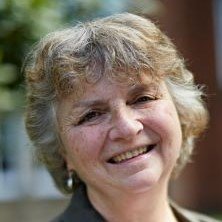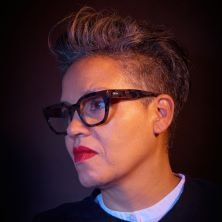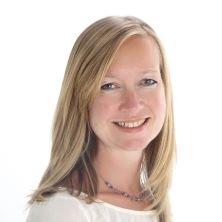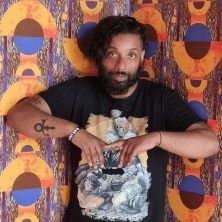07 Jul 2025
9:30am - 3:45pm
STEAMhouseBelmont Row
Birmingham
B4 7RQ
£150
How much are the tickets?
Ticket price: £150 general admission
In addition to talks from keynote and guest speakers, delegates can choose to attend three workshops.
Resources from all speakers and workshops will be made electronically available to delegates after the conference.
Why attend:
- Get new ideas to develop your students' literacy skills: Hear from expert and inspiring speakers on how to support students’ literacy development, including critical literacy skills for the digital age, encouraging reading for pleasure and offering an inclusive curriculum
- Tackle KS2-3 transition: Find out how to address the linguistic challenges students encounter when making the transition from a KS2 to KS3 curriculum from expert academic and researcher, Professor Alice Deignan
- Pick up new strategies: Participate in a wide choice of workshops offering strategies and solutions to improve literacy skills
- Access extensive resources: Receive a post-conference e-pack of resources from all sessions and workshops
Conference keynote speakers
Alice Deignan, Professor of Applied Linguistics at the School of Education, University of Leeds

The linguistic challenge of the transition from primary to secondary school
Alice Deignan will discuss her ESRC-funded research 'The linguistic challenge of the transition from primary to secondary school'. Her work analyses differences in language, especially vocabulary, across years, key stages and disciplines, in collaboration with teachers.
Kit de Waal, award-winning author and academic

Kit is a fellow of the Royal Society of Literature and Professor and Jean Humphreys Writer in Residence at Leicester University.
Her debut novel My Name Is Leon was an international bestseller, shortlisted for the Costa First Novel Award, longlisted for the Desmond Elliott Prize and won the Kerry Group Irish Novel of the Year Award for 2017. In 2022 it was adapted for television by the BBC. It is now on the GCSE curriculum for schools.
(Image credit: Paul Crowther)
Guest speakers
Ruth Page, Professor in Applied Linguistics, University of Birmingham

Critical literacy: combatting influencer misinformation on social media
Ruth Page's research interests focus on how stories are shared in social media. Her guest speaker session will explore her current research on how in the face of the current mental health emergency, young people are increasingly turning to ‘social media DIY’, including social media influencers as a source of help. She will discuss how the explicit and implicit health education from influencers requires complex skills which span critical thinking, linguistic, multimodal and algorithmic literacies.
Bobby Joseph, UK Comics Laureate

Diversity and Representation in Comics
Comics Laureate Bobby Joseph will discuss the representation of Black and minority characters in comic books from the last century. He will show how these controversial stories and characters have evolved to reflect the problems and issues of society, and why is it now important for diverse voices to start controlling their own narratives.
Steven Camden aka Polarbear

What about the boys?
How can we engage boys with literature and encourage an excitement about storytelling? Drawing on his own journey with reading and writing, award winning author, poet and playwright Steven Camden explores this multi-faceted and important question.
Workshops
Delegates at the Secondary Conference can choose to attend three workshops. No prior booking for workshops is required. Resources from all workshops will be made electronically available to delegates after the conference.
More workshops to be added shortly.
Developing a place-based approach to increasing literacy engagement
- Kyle Turakhia, Birmingham Hub Manager, National Literacy Trust
- Dr. Emily Wingfield, University of Birmingham Lead Partner at the Birmingham Hub
- Professor Ruth Gilligan, Novelist and Key University of Birmingham Partner at the Birmingham Hub
For the past five years, the National Literacy Trust and the University of Birmingham have been working collaboratively to develop a place-based approach to increasing literacy engagement, exploring the intersection between literacy and the local community, and how leveraging the unique cultural, historical, and environmental assets of Birmingham can foster a deeper connection to literacy. This workshop is an opportunity to find out more about this work and to consider how place-based principles might apply to your setting.
Implementing disciplinary literacy: a Trust-wide strategy
- Laura Jayne Chivers, Education Adviser for English, Consilium Academies
Consilium Academies are working with the National Literacy Trust to develop a school-wide and whole-Trust approach to embedding the teaching and learning of disciplinary literacy with the curriculum. Their Education Adviser for English, Laura Jayne Chivers, who is leading the project in collaboration with the National Literacy Trust’s school improvement team will discuss approaches to implementation, and key findings and learning.
Developing a tutor-time reading programme
- Jamie Foster, Assistant Head, Bishop David Brown School, Unity Schools Trust
Responding to a need to develop students’ academic vocabulary post-pandemic, Jamie Foster has introduced a tutor-time reading programme, which takes place three times a week and involves all year groups. The programme blends explicit vocabulary instruction with the opportunity for students to engage with a range of texts chosen to broaden thinking and horizons. In this workshop, Jamie will discuss the project from inception to delivery and share some of his learning and the impact.
STEAM as an interdisciplinary practice
- Alexa Hartwell, Head of STEAM Academy Innovation and Development, STEAMhouse
STEAMhouse, Birmingham City University - our conference venue - have a focus on research, innovation, enterprise, and employability (RIEE). The practice of STEAM integrates two critical areas – Arts and Humanities and STEM (Science, Technology, Engineering, Mathematics) – with the aim of fostering creativity, innovation, problem-solving, and holistic thinking. This workshop will examine the STEAM mindset, provide examples of how STEAM can be applied within the curriculum, and give a practical demonstration of STEAM in action.
Critical thinking, influencers and mental health education
- Ruth Page, Professor in Applied Linguistics, University of Birmingham
In this workshop that follows Professor Page’s guest speaker presentation, she will provide practical examples and exercises that can be used to equip young people with the critical thinking skills to engage with the mental health education that social media influencers have made available.
Supporting late arriving learners who use English as an Additional Language (EAL)
- Sarah Moodie, EAL specialist and The Bell Foundation Trainer
The challenge facing many EAL learners who arrive in Year 9 and beyond is enormous. This workshop will draw on Refugee Education UK’s research together with real-life examples to explore ways that schools can support this group to thrive in our classrooms and beyond. It will consider: the linguistic challenge facing late-arriving EAL learners; the importance of an asset-based approach; practical strategies to use in the classroom, and how to prepare learners for beyond Year 11.